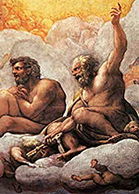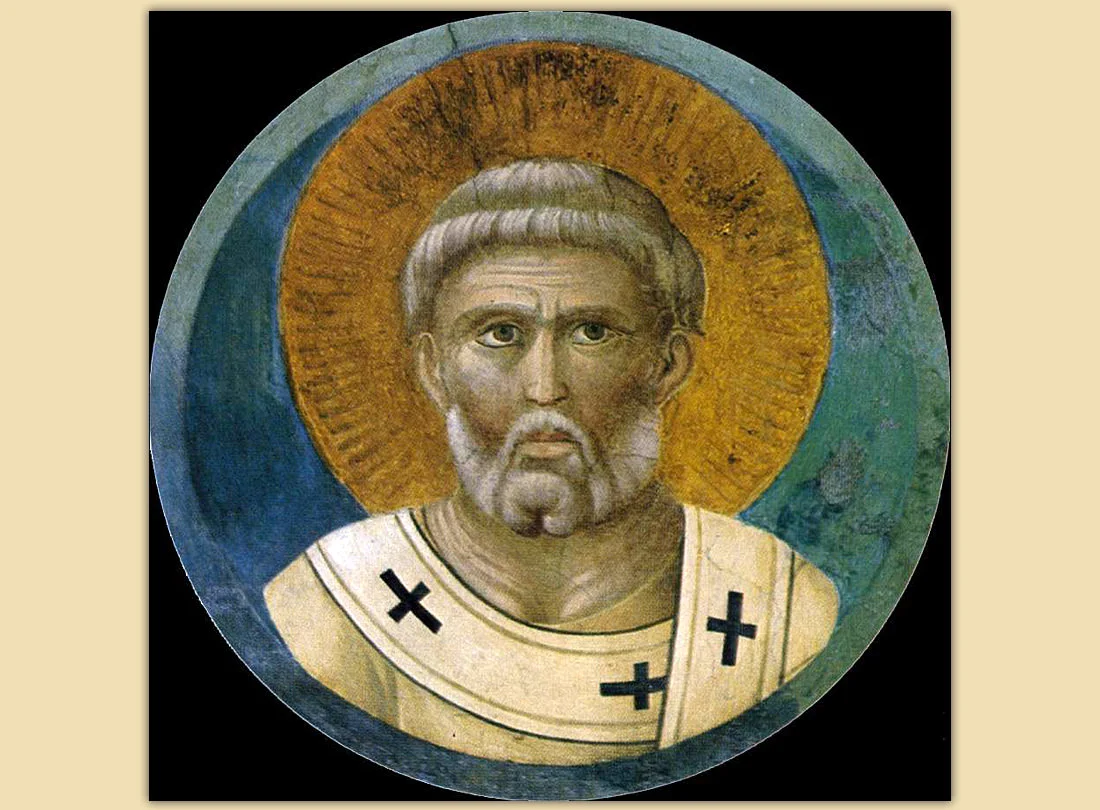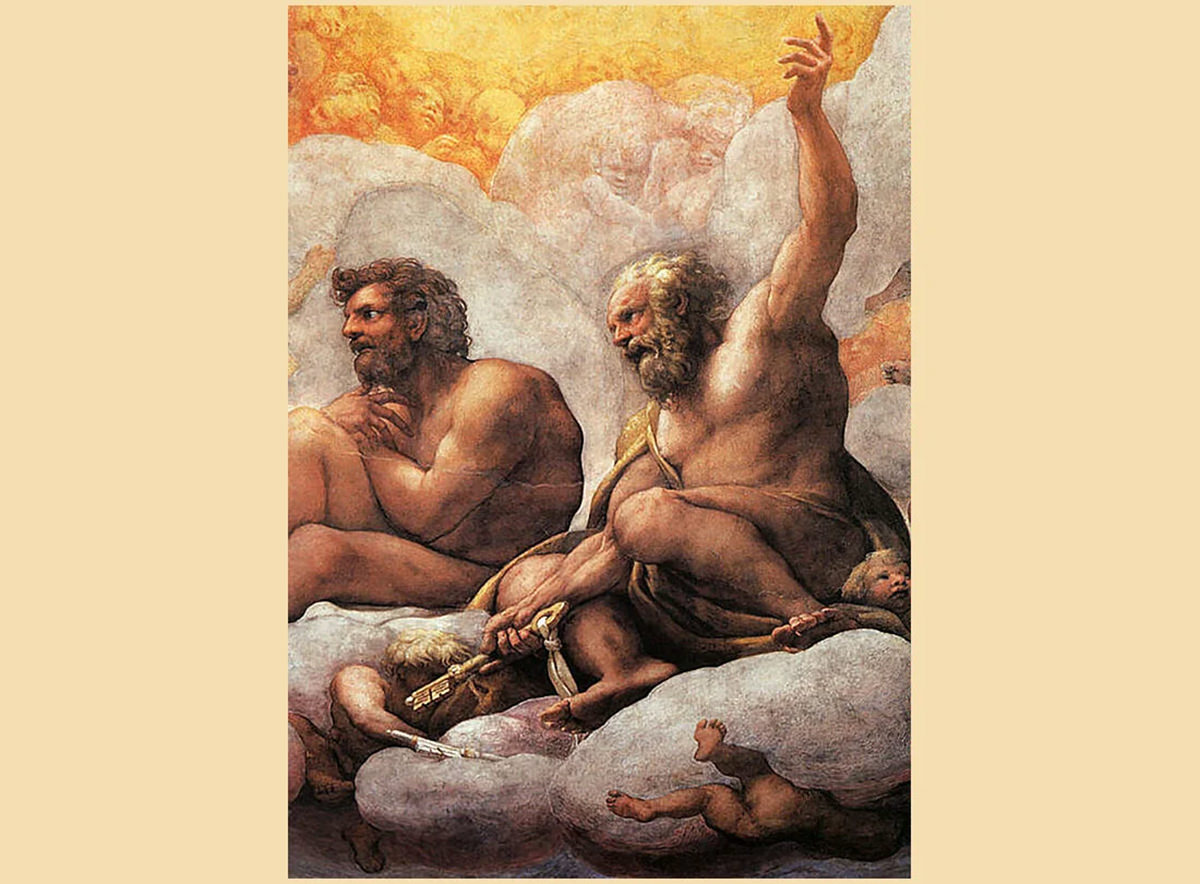
by Warren Camp
2 Peter 3:17–18 . . .
“Peter’s Final Greeting and Salutation”
Peter concludes his second letter with two memorable closing verses. These provide a clean, concise summary of the whole book of 2nd Peter. In the end, he said, “Amen,” the world’s most widely used and often said prayer word. He acknowledges that his readers already know the basic truths that he’s delivered to them. Now, he reiterates that this knowledge makes them personally responsible to never be deceived. After all, false teachers are lawless people who’ve rebelled against God’s authority and continually seek to lead others away from Father God.
As Peter finishes his final epistle, concerned about false teachers who were plaguing the churches, he again reminds his readers to persevere, as he’d directed them in 3:1–2 (highlighted in Warren’s commentary on that essential concept). He’ll now repeat the themes that he’s emphasized throughout this letter, warning his readers of the danger that false teachers presented, exhorting us to live and grow spiritually in the grace and knowledge of Jesus Christ. [See Dr. Charles Stanley’s “Measuring Our Spiritual Growth” advisory at the bottom of this final commentary.]
“You Have Been Forewarned” (3:17)
Peter’s “since you have been forewarned” advisory is a reminder that every true believer who knows assuredly of the upcoming day of the Lord and awaits it with patient expectation must make a concerted effort to persevere in his or her faith in Christ the Lord. Otherwise, he or she will fall from their seemingly secure position as a follower of him. Every Christian must take care to continuously abide in and become one with Jesus.
17Therefore, dear friends, since you have been forewarned, be on your guard so that you may not be carried away by the error of the lawless and fall from your secure position (2 Pet. 3:17 NIV).
We Christians must always remember that it’s our responsibility to continually check the source and content of what we’re told (Acts 17:11). We must compare what others say or proclaim against the truth of God’s word. We must not be carried away or misled by false teaching, no matter how good and reasonable it sounds on the surface (Colossians 2:8). Otherwise, Peter warns not to “fall from your secure position.” This phrase is also translated as "lose your own stability" (ESV), “lose your own firm commitment,” (NASB) and "fall from your own steadfastness" (KJV). Although the Greek phrase uses the word ekpesēte, literally meaning “to fall,” this phrase has nothing to do with the gift of salvation. Peter isn’t suggesting in any way a possible resulting loss of salvation leading to eternal damnation if we allow false teachers and their teachings to delude and mislead us. In fact, Peter affirmed in 1 Peter 1:4–5 that a Christian’s position in eternity can’t ever be lost because it’s protectively shielded by God’s plan and power.
Instead, it’s quite likely that Peter’s directive in v. 17 refers specifically to one’s confidence and sense of stability, which comes from living in the truth. He warns against not using intellectual and spiritual discernment that leads to our security, not our eternal salvation. In the end, for true believers, inner peace comes only when we trust God and his holy word unreservedly.
In his commentary titled “Sharpening Our Sensitivity to Scripture Twisters,” Pastor/teacher Bob Deffinbaugh says this about v. 17: “Peter’s words are written so Christians will be on their guard, alert to those who twist the Scriptures. He expects that saints not only can but should be able to discern those who pervert God’s Word. Peter isn’t speaking only to church leaders or Bible teachers here; he’s speaking to all the saints. Every Christian should be able to recognize those about whom Peter warns us. He indicates how Christians can be prepared to spot false teachers and turn from them. The first thing necessary is for us to realize we’ve been forewarned that Scripture twisters are going to arise, not only from without but from within the church. We must therefore be like the Bereans, always putting the teaching of others (even those whom we respect) to the test. Second, the best preventative for false teaching by others is to actively pursue godliness and personal spiritual growth, as documented in these two verses.”[1]
It couldn’t be any clearer in Peter’s two epistles (certainly Paul’s also) that the Scriptures are of primary importance to Christians. Nothing is more dangerous and harmful than twisting the truth of God’s holy Word. Peter knows that he’ll die soon. Therefore, he purposefully calls his readers to never stop remembering and applying the truths of what Father God has written (1:13–15). Peter writes in accord with the other apostles, especially Paul (see 1 Timothy 4:1–16; 6:1–5, 20–21; 2 Timothy 3:1–4:8). For that reason, Peter reminds his readers in 3:15–16 that he fully endorses and acclaims Paul’s writings as being inspired words of God!
Apostle Paul, in our previous study, also discoursed on this same subject — “be on your guard” (1 Corinthians 10:12). The phrase means to watch carefully, be careful, be vigilant, or be on the lookout. With it, Paul conveys the idea of a person who thinks he’s standing firm in the faith but, in reality, is overly confident and self-deceived. The ESV Bible version words this phrase as “Take heed lest you fall,” which serves to warn those in the church who are convinced of their own righteousness. These people should be careful. They may instead be poised to fall just as the Israelites had done in the desert.
In addition, when Peter writes, “carried away by,” he uses the identical phrase used by Paul in Galatians 2:13; and in that instance it was Peter and Barnabas, when they’d come to Antioch, who were “carried away by” the hypocrisy of false teachings. Peter first compromised by acting as if the Gentile Christians weren’t Christians at all. Barnabas acted similarly; then the rest of the Jews at the church in Antioch followed Peter and Barnabas. Sadly, Peter had indeed been “carried away by” hypocrites. He withdrew and separated himself from non-Jewish Gentile believers though he’d often previously eaten with Gentiles.
And when Peter writes, “the error of the lawless,” he was probably referencing the false teachers cited in 2:2. His characterization of the heretics in this verse shows clearly the nature of this false teaching that adopted the view that Christians are gracefully released from any obligation to observe moral laws. Those who held it viewed themselves as having absolutely no duty to obey the laws; they maintained that no laws applied to them.
Peter’s Command to Grow in Grace and Be Fruitful (v. 18)
Every Christian is to constantly “grow in grace,” God’s grace. Because we’ve been saved by his grace, we ought to delight in it without getting bogged down with legalism, judgmental attitudes, critical attitudes, and negative thoughts. Instead, we’re expected to flourish and be ever-fruitful as we continuously grow and become more aware of God’s love, forgiveness, encouragement, confidence, and assurance. The more we grow in God’s grace and knowledge, the more gracious and fruitful we’ll become as his dear children.
18But grow in the grace and knowledge of our Lord and Savior Jesus Christ. To him be glory both now and forever! Amen (2 Pet. 3:18).
We’re also commanded to grow, albeit constantly, says Peter in v. 17, in the “knowledge of our Lord and Savior Jesus Christ.” Such head knowledge is often experienced through our actions, which develop and increase our faith. However, pure head knowledge without faith will assuredly degenerate into dead, cold doctrine and practice. Knowledge of and about Christ are sure safeguards against heresy and apostasy. Remember: Apostle Peter began this second epistle emphasizing the serious significance of knowledge (1:2–3, 5). He concludes by again stressing knowledge, probably as an antidote to the false teachers who boasted about their obscure and dubious knowledge.
In addition to knowledge of Jesus, notice carefully how Peter has been stressing growth in him (vv. 11–14). Those of us who continually grow in the truthful knowledge of Jesus, while constantly exercising our faith in him, are bound to grow spiritually, produce good fruit in his eyes, and be victorious to the end.
Finally, Peter lauds and honors Jesus with his “To him be glory both now and forever!” It gives God glory when he sees us ready and steadfast in the grace and knowledge of our Lord Jesus. And, under the New Covenant, we say “Amen” as Peter has whenever we announce a great blessing and a praise to God. Peter does just that with high expectation, rightfully so.
Herein, Peter closes with what could very well sum up this entire letter. He’s been warning believers about false teachers. Concerned that they’d be led astray in their belief, he highlights the evil lifestyle and coming doom of all false teachers. Believers must never fall into false teachers’ traps; they must, instead, grow in grace and knowledge. By studying God’s word diligently, they’ll undoubtedly become more and more steady and secure in their faith, thereby strong enough to successfully resist all false teaching.
“Measuring Our Spiritual Growth” by Dr. Charles Stanley
All around the world, people go to church, bow their heads to pray, and hear sermons; but many aren’t growing spiritually. It’s all too common for believers to assume that these actions fulfill Christian obligations. They may complete a checklist but they have an idle relationship with Jesus. Do you see evidence in your own life that you’re maturing in your walk with the Lord?
To blossom spiritually, we must be saved. This happens the moment God makes us new, cleansing us of unrighteousness and adopting us as His own children. Then, we can begin to grow. However, even with this new life, we can become stagnant.
There are several indicators that reveal the quality of our Christian journey. Today, let’s us explore a few of them. First, growing believers should sense a deepening hunger for Christ. As we experience more of Jesus, the bread of life (John 6:35), our desire for Him will increase. Second, believers dwelling closely with the Savior will notice that their discernment of sin sharpens. Faulty teaching and thinking become more obvious as we accumulate truth within our spirit. Third, our sphere of love should continuously expand. In time, the Holy Spirit of Jesus enables us to care for people who previously were either unnoticed or difficult to accept.
Do you have a hunger for God and an increasing awareness of sin? Is your love available only for those who match your personal standard of performance — or do you find yourself caring about even difficult-to-accept people? These are important questions to ask when evaluating your spiritual growth.
- Q. 1 How can you know if you’re growing spiritually?
- Q. 2 What are a few biblical tests for growth? Which tests do you pass and fail?
- Q. 3 What’s the difference between “knowing about Christ” and “knowing Christ”?
Summary Video: “Second Peter”
† Watch this overview video of Second Peter created by BibleProject.
Warren’s New “Peter Masterpieces” Photo Album
† View several classic paintings of Saint Peter by art world masters: Rembrandt, Michelangelo, Da Vinci, Rubens, Goya, El Greco, Raphael, Masaccio, Giotto, Correggio, Tintoretto, and many more.
2 Peter 3:17–18
New International Version (NIV) or view it in a different version by clicking here.
— Listen to chapter 3, narrated by Max McLean.







